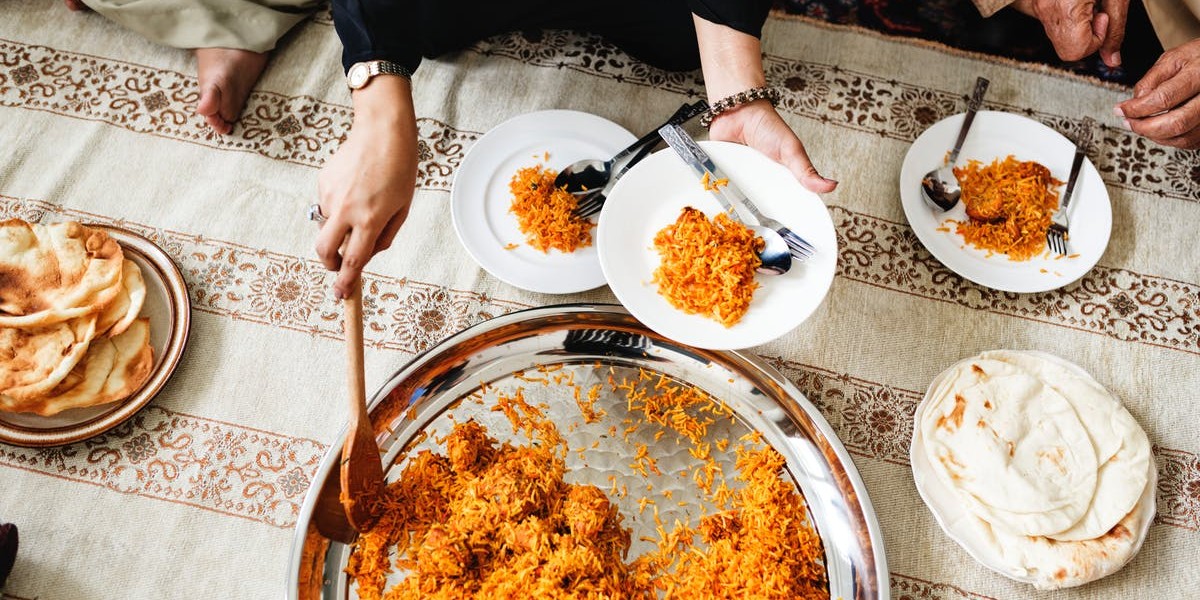It’s an unseasonably cold and windy late May morning in the sleepy little Southern Wisconsin town of Lake Geneva. Like something out of a storybook, the streets are lined with vintage lamps, cobblestone sidewalks, and Victorian homes. It’s almost too good to be true. The night before we piled all of our children into a rental car and made the 3 and half hour drive north of our hometown for my wife to speak at a foster and adoptive moms retreat all weekend. Our stay at a comfortable hotel on the outskirts of town is made perfect by a hot (and free) breakfast before we start the day.
I can hear the panic in my child’s voice as he wakes me up in the early morning hours. Question after question flows as I fumble to find my phone and shoes in the darkness of the room- “Hey dad, when are we gonna have breakfast?” “Hey dad, will they have waffles, and oatmeal, and toast?” “Hey dad, how long is breakfast open?” “Hey dad, we’re not going to miss breakfast are we?” “Hey dad, what if they run out of food down there?”
Even in the darkness of the room, and in-spite of my weariness, my heart fills with compassion for him. The questions are coming from a distant, dark place, deep within him, that he doesn’t even recall. It’s a voice that continually prompts and pokes at him. As a baby, before he came into our care, he was hungry. And even when he was fed, it wasn’t enough…it wasn’t filling….so it left him insecure in a way that he may never be able to articulate. Even though he has had safety, security and plenty of food for years, the fear of malnourishment remains.
When we arrive to the lobby of the hotel that morning, and find a table in the continental breakfast lounge our entire family can fit around, I begin gently reminding him. With a warm smile, I cheerfully say to him, “Hey buddy, remember, there will always be enough food this morning. Even if they run out of something, there are people in the back who are making more. And remember, you can go back up and get more if you feel hungry.”
He nods and smiles. But the panic is still there. It’s everlasting. It’s a whisper deep within his psyche saying, “There’s not going to be enough.”
Trauma is a panic that lives within our kiddos. It’s a retreat to the brain stem (survival mode) because of an unmet need in the early stages of life. It’s an all-too-common theme amongst children in foster care, or children who have been adopted from trauma. And let’s be honest- it can be frustrating! How do you respond? How do you handle the child who constantly asks or obsesses over food? How do you handle the child who hides food in his or her bedroom, or hoards food at school?
Here are some thoughts…
- Remember. Before we talk about your child. let’s talk about you for a moment. You must remember where your child has come from, what they went through before they came into your care, and how that all plays out in their life (and behavior) today. A child who was malnourished, starving, or constantly worried about food source in their younger years, will carry that fear into their older years. It will affect their behavior, the way they eat, and the way they respond to meal times. Simply remember this will give you a compassionate outlook, and will help you respond calmly.
- Respond. It’s crucial that you respond with compassion, gentleness, and kindness. I know this can be frustrating to deal with. Your response to their food insecurity can be the difference between a trigger or trust. Remember that and respond with compassion.
Your response to your child’s food insecurity can be the difference between a trigger or trust. - Permission. We don’t ever tell our children “no” to food. Especially those of our children who went through malnourishment and starvation in their infant years. Instead, we grant permission to get food when they feel worried. We keep healthy snacks on hand (fruit, veggies, etc) that are always accessible. Grant your child permission to get food when he or she feels insecure.
- Remind. In the same spirit, when you are getting close to a meal time, remind them that it is almost meal time. Remind them that there will always be enough food. Remind them that if they feel they need more after their first helping, they are welcome to get seconds, or thirds. If you’re away from home, remind them that you will be stopping at _____ time to eat. You may even pull up a map on your phone and show them how far you have to travel until you arrive at the restaurant.
- Show. I mentioned a moment ago, that we keep healthy snacks on hand that are always accessible. But we actively show our children who deal with insecurities, where this food is located. The only thing we ask them to do is ask us before opening up the cabinet. This is an important boundary in helping them regulate through this. For the child who hoards food at night, keep a special stash that is designated “their’s only” on hand in your kitchen or pantry for when they feel hungry. Set the boundary that they must have the snack in the kitchen (or you’ll provide plenty of feasting for mice or bugs :-)), but make sure they understand where the food is, and that there is enough. Same is true for school. If your child is hoarding food at school or panicking that lunch is too far away, coordinate special snack time with your child’s teacher or aid.
Food insecurities, and food worries are really a tension to manage, they may not be a problem you can solve. We know adults who were malnourished as children, some 30 to 40 years in the past, and they still live with the affects of food scarcity. Some of them don’t even realize they reacting out of this past trauma. Stay consistent with your child and make sure you respond with compassion and kindness. In time, your child will trust that there is enough, and you will never let go hungry.
Are you parenting a child with food insecurities? Share your story with us in the comment section below.









